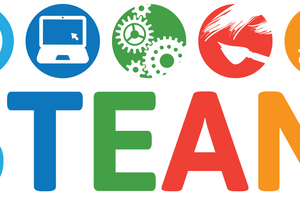An addicted person is unable to stop this action, he spends more and more time on it, he loses control over his behavior. Usually the person denies the problem, and the inability to perform the addictive activity causes somatic and psychological symptoms. Therefore, the answer to the question posed in the title of the article is affirmative. The number of people addicted to computers and phones is increasing due to their increasing availability and social acceptance. The game drowns out loneliness, boredom and anxiety. This affects the brain - it leads to the release of dopamine, cortisol and adrenaline, which leads to a state of euphoria, but at the same time - the ability to evaluate, make decisions and work effectively is reduced.
How can a parent or a teacher determine that a child is addicted? Alarming symptoms include:
• constantly thinking or talking about the computer and the Internet (what you did on the Internet, what you will do after logging in); the child talks a lot about games, "dreams" of "entering" the game or acts out its characters;
• the use of words used in online conversations in real conversations;
• excessive euphoria and excitement while using the computer;
• the need to increase the amount of time spent in front of the computer monitor; willingness to play more and more;
• lack of control - cannot predict how many minutes will be played;
• unsuccessful attempts to control, limit or stop the use of the computer - the child does not comply with the agreements, reacts with anger to the attention given; lies to loved ones to hide the truth about how much time was spent in front of the computer
• denying the negative consequences of the game, the child tries to rationalize and minimize them, denies the existence of the problem ("after all, everyone uses a computer")
• deterioration of relations with parents, siblings and friends, isolation from peers;
• search for virtual friends;
• rejection of the fascination that existed in the real world; the child prefers surfing the Internet to going to the pool, dancing, etc.;
• neglecting daily activities and responsibilities (eating at the computer, forgetting homework, lack of sleep);
• the child increasingly shows anxiety, irritability, depression (when he does not play, he feels bad); may feel guilty, powerless;
• an increased level of anxiety;
• problems with falling asleep, sleeping at a different time than before, frequent awakenings at night;
• occurrence of somatic symptoms, such as headache and back pain, eye strain, changes in body weight;
• difficulties in learning, deteriorating grades;
• increasing problems with concentration during lessons, doing homework;
aggressive behavior towards peers and adults;
• missing study hours;
Protecting children in the digital environment
If you notice any of these symptoms in your student or child, or worse, several of them occur at the same time, the best solution is to see a psychologist or therapist. It should be remembered that the sooner therapy begins, the better for the child. However, the most important thing is to act on the principle that "prevention is better than cure" and teach students about Internet safety and technological addictions as early as possible.
















































